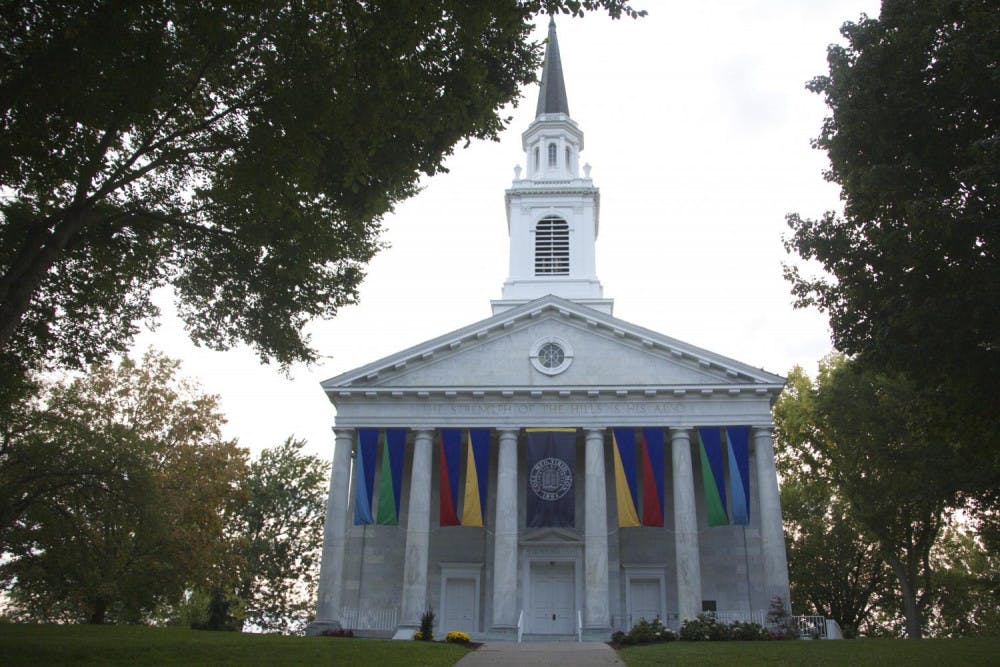The Jewish community on campus and in town will observe Rosh Hashanah, a two-day celebration of the Jewish New Year from Sept. 20 to 22. Rosh Hashanah falls on the first day of Tishrei, which is a month in the Jewish calendar, and, like all Jewish holidays, it falls on a different day on the secular calendar each year.
Rabbi Danielle Stillman, the college’s new associate chaplain at the Scott Center for Spiritual and Religious Life, will lead services in collaboration with Aaron Mendelsohn ’95. This fall marks the twenty-fifth year that Mendelsohn has traveled to the college to sing during the ceremony. In her first Rosh Hashanah as the college rabbi, Stillman will guide community members through prayer-leading and intention-setting.
The holiday began at sundown on Wednesday, Sept. 20, and will continue until sundown on Friday, Sept. 22. Services will be held Wednesday night at 6:30 and throughout the day on Thursday.
Stillman described Rosh Hashanah as “a time of year where there’s a lot of reflection over what the past year was like for you, what you want to carry forward with you into the new year, and what you’d like to change for the new year.”
This year, the overlap of Rosh Hashanah and the add-drop period may create logistical complications for those seeking to attend to both academic and religious commitments. Some students take time out of their hectic back-to-school schedules to attend all or part of the services.
“Everyone does it differently depending on what their practice is and how they’re feeling about their classes,” Stillman said. “Students should feel free to come and go if they need to. Of course I’d love to see someone there for the whole time, but I’d rather see someone come for an hour than not at all if they have a class.”
Ben Dohan ’20, the rituals chair of the college’s Jewish organization, Hillel, commented on the implications of the college’s academic calendar on the observance of Rosh Hashanah.
“Overall, it’s not too difficult to balance religious life and school,” he said. “This is the one period of time where it is [hard], because the only really big celebrations we have are the High Holidays and Passover in the spring. Passover is at night, so it’s really just now that it becomes difficult.”
The activities fair is scheduled later than usual this year, which may make it harder for the Hillel board to reach out to Jewish first years and make them aware of the service schedule. Hillel board members conducted outreach over last week, including posting fliers in dining halls and tabling outside of Proctor.
Elana Feldman ’17.5, who will observe her fourth Rosh Hashanah at the college this fall, is used to navigating the conflicting schedules of school and the High Holiday period.
“I’ll get out of class a little early and go to Mead Chapel really quick and stay at the service for half an hour and go to another class,” she explained. “You can tell that there are people walking in and out and doing that all day, so it makes for not necessarily the most fluid service, but I think that if people are not that observant, they’re okay with doing that and it caters to that need.”
In addition to services, Rosh Hashanah is celebrated through rituals such as dipping apples in honey to usher in a sweet new year; blowing the shofar, a ram’s horn, to wake up individuals to the possibility of change; and consuming round challahs, a braided bread, to symbolize the calendar cycle.
As the Jewish community celebrates a new year, Stillman is also looking ahead to her first ceremony as the college rabbi and her role within the context of Middlebury.
“My vision is a really open and inclusive community where everyone, including non-Jewish students, feel like they can come and celebrate and learn about Judaism, but where Jewish students feel that they can get the particular experience of being Jewish and they have a space to explore their Jewish identity,” Stillman said. “It’s actually good for everyone, because I found in other campuses where I worked, when students who aren’t familiar with Jewish traditions come, then the Jewish students have to think, why do we do this? And that’s good for everyone, to ask those questions.”



